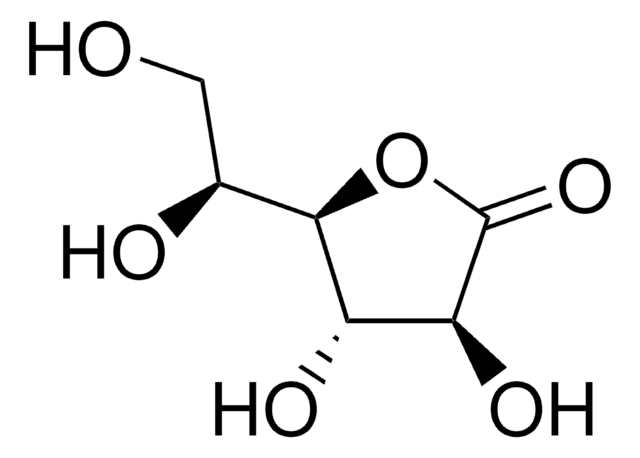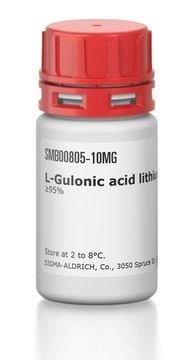F1395
β-L-Fucose 1-phosphate bis(cyclohexylammonium) salt
≥98%
Synonym(s):
6-Deoxy-β-L-galactose 1-phosphate
About This Item
Recommended Products
Assay
≥98%
form
powder
technique(s)
thin layer chromatography (TLC): suitable
solubility
H2O: soluble 50 mg/mL, clear, colorless
storage temp.
−20°C
SMILES string
NC1CCCCC1.NC2CCCCC2.C[C@@H]3O[C@H](OP(O)(O)=O)[C@@H](O)[C@H](O)[C@@H]3O
InChI
1S/2C6H13N.C6H13O8P/c2*7-6-4-2-1-3-5-6;1-2-3(7)4(8)5(9)6(13-2)14-15(10,11)12/h2*6H,1-5,7H2;2-9H,1H3,(H2,10,11,12)/t;;2-,3+,4+,5-,6+/m..0/s1
InChI key
FQMPFZHILABVMA-PEJHDPODSA-N
Related Categories
Application
Other Notes
Storage Class Code
11 - Combustible Solids
WGK
WGK 3
Flash Point(F)
Not applicable
Flash Point(C)
Not applicable
Personal Protective Equipment
Certificates of Analysis (COA)
Search for Certificates of Analysis (COA) by entering the products Lot/Batch Number. Lot and Batch Numbers can be found on a product’s label following the words ‘Lot’ or ‘Batch’.
Already Own This Product?
Find documentation for the products that you have recently purchased in the Document Library.
Our team of scientists has experience in all areas of research including Life Science, Material Science, Chemical Synthesis, Chromatography, Analytical and many others.
Contact Technical Service








